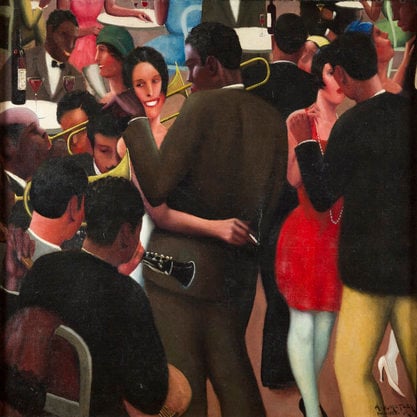Article
Modernism and Popular Music By Gibson, Stephen
Article
Modernism has an uneasy relationship with popular music and popular culture in general. Many modernist music movements (e.g. the twelve-tone school of Schoenberg) are diametrically opposed to popular music in both form and aesthetic. Though hardly uniform in its attitude to popular culture, certain strains of modernist thought (e.g. the Frankfurt school, and especially Adorno) have also vilified the use of popular culture references in modernist practices. Despite this rejection, several modernist composers from Stravinsky to Philip Glass have used popular music forms such as jazz and rock in their works. In a rather more remarkable turn of events, modernist and experimental music techniques have had a profound influence on various popular forms including free jazz, experimental rock and electronica.
